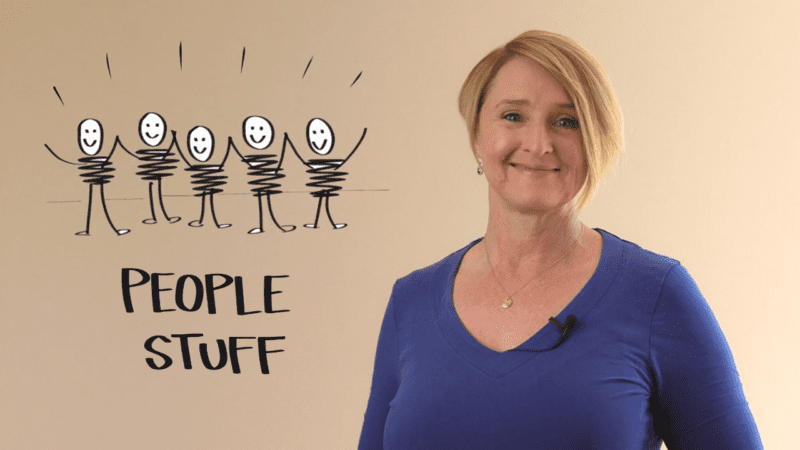148 – People Stuff: Dealing with the tough stuff in leadership | Ft. Zoe Routh

As our turbulent times have demonstrated, leadership is an attribute that can only be proven under fire. Zoë Routh has dedicated her career to the theory of leadership, but recent events have honed her perspectives into a daily practice. With her new book “People Stuff,” she aims to peer past easily identified personality problems to address the root of organizational issues. Her carefully considered vision of modern leadership is the topic of today’s conversation.
Lessons Learned
Beyond Work-Life Balance
1:14:
The phrase “work-life balance” has been popularized over the last few years to measure an individual’s overall satisfaction with life, and the impact of their job on it. However, Routh’s human-centered approach points to “work-life balance” as a flawed metric. For ideal outcomes, team members should feel fully engaged with as much of their day as possible. In her view, organizational leaders must create experiences that reward effective work as well as fostering an environment where everyone is fulfilled as well as productive.
Creative License
4:37:
Crises of leadership form the narrative of our times, and Routh’s lifelong love of literature has given her a keen eye for identifying such a storyline. Meaning and metaphor are a part of her perception at its core, and this genre-savviness informs her work in classifying leadership styles. Looking to the work of Joseph Campbell, who studied archetypes in legend and lore across cultures, she has devised this system of archetypes. Although their methods may differ, all begin on the familiar “hero’s journey” that leads to a given resolution.
The Journey is The Destination
11:20:
To bring her ideas out of the pages of fiction, the conversation turns to a more relatable journey: the story of every marathon runner. For Routh, these weekend warriors represent the purest essence of narrative power. When we read about an endurance runner, we can feel the experiences flowing through us: the exhaustion, the pain, the perseverance. Although we can also share this connection with fictional characters, a grounded narrative such as this provide fertile ground for ideological growth. By considering the mindset of distance runners at their most difficult moments, we can better replicate their will to succeed.
Winning vs. Succeeding
16:22:
Politics around the world have grown more contentious during these times, and Routh’s homeland of Australia is no different. At times, the discourse around public matters no longer resemble conversations on statecraft or civic affairs, but personal survival. Routh points to our systems as facilitators of this discord, with rapid-cycle changes and ever-diversifying interests. Instead, Routh champions a longer view of societal success, leaving leaders unfettered to make decisions for long-term stability instead of instant gratification.
The Essentiality of Ethos
18:07:
In any pursuit, there is always a distinct tension between progress and preservation. We all wish to conserve the best aspects of our previous endeavours while allowing room for beneficial development. In a leadership scenario, this tension can often prove difficult to navigate. The leadership archetypes all have strengths and weaknesses in given phases of this exchange, and so it is best to remain flexible while retaining certain shared beliefs. To truly understand Routh’s work, we must understand when to hold fast and when to let go.
Connect with Zoe Routh:
https://www.zoerouth.com/
https://www.linkedin.com/in/zoerouth/
https://twitter.com/zoerouth
https://www.instagram.com/zoerouth/



